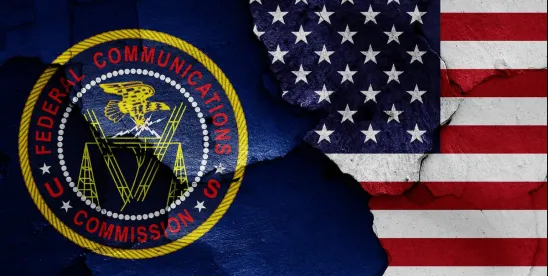So one of the big topics of conversation at the Law Conference of Champions was the impact of Loper Bright on FCC rulings.
In many instances, as I explained, FCC rulings are subject to the protection of the Hobbs Act–meaning district courts cannot set aside those rulings, despite the recent US Supreme Court decision in Loper.
In other instances the FCC’s interpretive rulings will not be entitled to deference. But that doesn’t mean a court still won’t consider and agree with those rulings.
Consider the case of Lyman v. Quinstreet, 2024 WL 3406992 (N.D. Cal. July 12, 2024.) There lead gen giant QuinStreet argued it could not be liable for DNC violations because the number it texted was a cellular number and, hence, could not be “residential.”
The FCC long ago ruled cellular phones are residential when used for personal purposes. And the Ninth Circuit Court of Appeals has certainly adopted by that position as well.
But QuinnStreet moved to dismiss on that basis anyway, and with Loper Bright coming down recently it figured the gamble might pay off.
It didn’t.
In the first place the Court found Chenette was binding. NO surprise.
In the second place the Court felt the statutory language permitted the presumption that cellular phones were residential lines regardless.
But most importantly for our educational purposes, the Court determined it would still adopt the FCC’s position because it was “persuasive”:
Finally, the Court accords due respect to the FCC’s interpretation under pre-Chevron principles. See Loper Bright Enterprises v. Raimondo, No. 22-1219, 2024 WL 3208360, at *9 (U.S. June 28, 2024). As the Court has done here, the Court needs only “independently identify and respect such delegation[ ] of authority, police the outer statutory boundaries of [that delegation], and ensure that [the agency exercises its] discretion consistent with the APA.” Loper, 2024 WL 3208360, at *17. Here, Congress has expressly conferred discretionary authority on the agency to flesh out the TCPA. See 47 U.S.C. § 227(c). Using its discretion within the boundaries of its delegation, the agency has created a presumption that a cell phone registered on the Do Not Call Registry is a residential phone, a presumption that has lasted for more than two decades. See 47 C.F.R. § 64.12000(e). The FCC’s interpretation “rests on factual premises within the agency’s expertise,” thus giving its interpretation “particular power to persuade, if lacking power to control.” Loper, 2024 WL 3208360, at *17 (cleaned up). In this context, it is “especially informative” and particularly persuasive. Id. In any event, however, the Court would reach the same conclusion in the absence of any FCC interpretation of the TCPA’s statutory text
Get it?
Just because the district court can disregard an agency definition of a vague provision in a statute that does not mean it will disregard that definition.
The Lymann court was impressed with the FCC’s reasoning and adopted it. And that was perfectly permissible.
While Loper Bright definitely introduces an element of uncertainty into TCPAWorld, therefore, beware of anyone who tells you FCC rulings are now out the window entirely. That is doubly false– first, the Hobbs Act protects some FCC rulings completely; second even where the Hobbs Act does not apply, courts are still likely to adopt the FCC’s rationale in many instances, as Lymann demonstrates.




 />i
/>i

